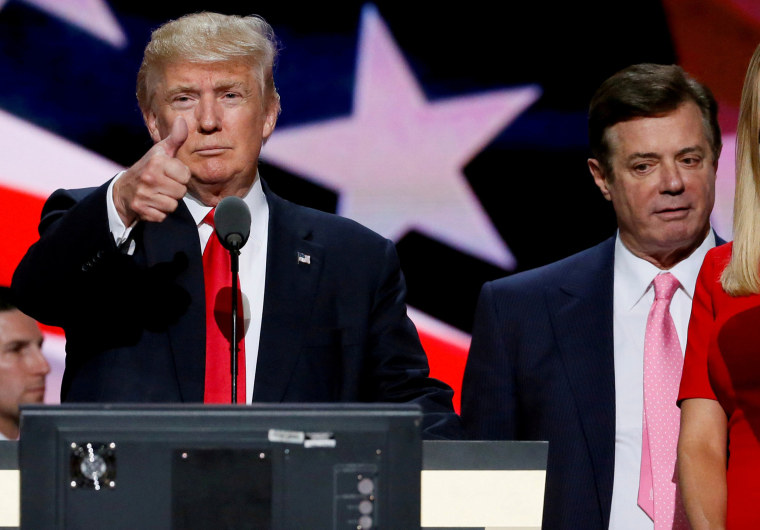Last week was a bad week for President Donald Trump. Special counsel Robert Mueller secured a guilty verdict against Trump’s former campaign manager Paul Manafort, while his former lawyer Michael Cohen pleaded guilty in the Southern District of New York to eight counts of campaign finance violations, tax fraud and bank fraud.
Attempting to minimize the damage, Trump tweeted that Cohen’s campaign finance violations “are not a crime.” Anyone who understands the law knows that Trump is wrong from a legal perspective. But just as importantly, this response underscores Trump’s lack of respect for and understanding of the way campaign finance laws protect our democracy and maintain the integrity of our electoral process.
As former prosecutors, we know that in our system of justice a person cannot plead guilty to something that’s not a crime — the judge, prosecutor and defense counsel would never allow it. Now that we’ve settled that, here’s the real problem: Trump is undermining not just the rule of law, but specifically laws that are specifically designed to prevent candidates from rigging the system to get elected.
As former prosecutors, we know that in our system of justice a person cannot plead guilty to something that’s not a crime.
Cohen’s guilty plea (and the conviction of Manafort on the same day) represent a rapid escalation in the scrutiny and criminal liability that Trump and his associates are currently facing. Cohen’s admission of guilt won’t just result in him becoming a felon, the plea also directly implicates the president. During his plea hearing, Cohen stated these payments were made at the direction of Trump.
Moral questions aside, these payments represent violations of the Federal Election Campaign Act (FECA). Count seven of the indictment references an unlawful corporate contribution regarding a $150,000 payment to Karen McDougal, someone who claimed to have had an extramarital affair with Trump. The payment to McDougal exceeds the strict $5,000 limit on corporate contributions for a general election. Count eight of the indictment charges that Cohen’s $130,000 payment to Stephanie Clifford, another person who allegedly had an extramarital affair with Trump, was also an excessive campaign contribution. The payments to Clifford exceed the strict $2,700 limit on individual contributions for a general election.
The two payments together are considerably higher than the allowable federal campaign limits, and therefore are considered illegal contributions, plain and simple. The corporate contribution was 30 times above federal limits, and the individual contribution was nearly 100 times above allowable limits.
We felt strongly enough about the excessive amount and timing of these payments to urge the FBI to open an investigation into the matter back in March of this year. As it turns out, we were right to be concerned.
Importantly, what Cohen did is not the same as what Trump has accused President Barack Obama of doing. In his response to Cohen’s guilty plea, Trump claimed: “President Obama had a big campaign finance violation and it was easily settled!” Trump is referring to a fine by the Federal Election Commission imposed on Obama’s first campaign for the presidency for failing to meet a series of 48 hour filing deadlines.
What Trump does not appear to understand is that there is a difference between civil violations of FECA — such as being late on filing deadlines — and criminal violations of FECA. The distinction between the two comes down to whether a person committed the act knowingly and willfully, and whether the illegal contribution exceeded $25,000. Cohen pleaded guilty to the “knowing and willful” part, and clearly the payments exceeded $25,000. In his plea deal, Cohen also admitted that he made the payments to influence the 2016 presidential election.
Trump’s attempts at misdirection notwithstanding, Cohen’s guilty plea proves why campaign finance laws are so critical to our system of government. These laws help ensure elections are fair and transparent, and that wealthy individuals can’t play an outsized role in electing our leaders. There’s obviously more we could do to fix the problem of money in politics, but Trump falsely intimating that campaign finance violations are routine or not a crime is deeply corrosive to our democracy and justice system.
Every time Trump downplays anything criminally nefarious that he or his associates have done, he is suggesting that he is above the law.
Every time Trump downplays anything criminally nefarious that he or his associates have done, he is suggesting that he is above the law, or worse yet, that our laws don’t matter at all. Prior to being elected to Congress, we both spent a good deal of our careers fighting to ensure that justice was served. And every time Trump demeans or downplays these crimes, he directly undermines the law enforcement officials who work tirelessly every day to protect honest taxpayers and bring criminals to justice.
We don’t expect Trump to change. Which is why it is so important that Congress fulfill its constitutional obligation to be a check and balance on the culture of corruption within the executive branch. Congress must call hearings to investigate whether Trump committed felony violations of our nation’s campaign finance laws.
